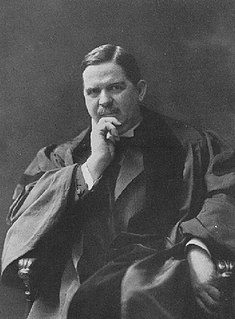A Quote by Richard Pitcairn
Living with animals can be a wonderful experience, especially if we choose to learn the valuable lessons animals teach through their natural enthusiasm, grace, resourcefulness, affection and forgiveness.
Related Quotes
When children see animals in a circus, they learn that animals exist for our amusement. Quite apart from the cruelty involved in training and confining these animals, the whole idea that we should enjoy the humiliating spectacle of an elephant or lion made to perform circus tricks shows a lack of respect for the animals as individuals.
It seems to me of great importance to teach children respect for life. Towards this end, experiments on living animals in classrooms should be stopped. To encourage cruelty in the name of science can only destroy the finer emotions of affection and sympathy, and breed an unfeeling callousness in the young towards suffering in all living creatures.
Many things that human words have upset are set at rest again by the
silence of animals. Animals move through the world like a caravan of
silence. A whole world, that of nature and that of animals, is filled
with silence. Nature and animals seem like protuberances of silence.
The silence of animals and the silence of nature would not be so great
and noble if it were merely a failure of language to materialize.
Silence has been entrusted to the animals and to nature as something
created for its own sake.
Plants don't think. Animals are guided by the power of instinct over which they themselves have no control. Animals have a certain kind of brain that makes it impossible to learn anything except very simple things. No generation of animals ever learns anything from any previous generation. We act like animals when we fail to use this magnificent piece of equipment.
Humans and other animals experience love and fear, and form deep emotional bonds with cherished companions. We mourn when a close friend dies, and so do other animals, as Barbara King's poignant book illustrates in compelling detail. How Animals Grieve helps us to connect and to better understand the complex social lives of other animals and of ourselves.
Grace is in a great measure a natural gift; elegance implies cultivation; or something of more artificial character. A rustic, uneducated girl may be graceful, but an elegant woman must be accomplished and well trained. It is the same with things as with persons; we talk of a graceful tree, but of an elegant house or other building. Animals may be graceful, but they cannot be elegant. The movements of a kitten or a young fawn are full of grace; but to call them "elegant" animals would be absurd.
Some meat eaters defend meat eating by pointing out that it is natural: in the wild, animals eat one another. The animals that end up on our breakfast, lunch, and dinner plates, however, aren't those who normally eat other animals. The animals we exploit for food are not the lions and tigers and bears of the world. For the most part, we eat the gentle vegan animals. However, on today's farms, we actually force them to become meat eaters by making them eat feed containing the rendered remains of other animals, which they would never eat in the wild.
Forgiveness is not a moral issue.
It is an energy dynamic...
Forgiveness means that you do not carry the baggage of an experience.
When you choose not to forgive,
the experience that you do not forgive sticks with you.
When you choose not to forgive,
it is like agreeing to wear dark, gruesome sunglasses that distort everything,
and it is you who are forced every day
to look at life through those contaminated lenses
because you have chosen to keep them.



































